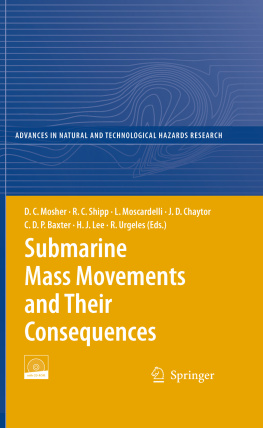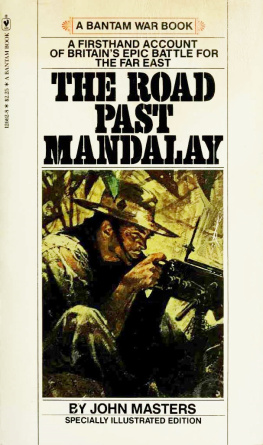INTRODUCTION
In reproducing the "Memoirs of the Extraordinary Military Career of John Shipp" as a volume of the Adventure Series, it may be well to say a few introductory words concerning the author and the book.
John Shipp was, he tells us, the second son of Thomas and Ltitia Shipp, persons in humble circumstances in the little town of Saxmundham, in Suffolk, and he adds that in the registers of the parish church will be found a record of his birth on March 16, 1785. The latter statement is incorrect. The church register records baptisms, not births, and a careful search has shown that the only entry answering to the above is a record of the baptism of John, the child of Thomas and Ltitia Shipp, at a date twelve months earlierMarch 16, 1784. The error probably explains the conflicting statements of the author's age which occur in the course of the story.
Shipp's father was a soldier (a marine?), and his mother dying when he was very young, he became an inmate of the parish poorhouse (there were no Union workhouses in those days), whence he passed into the hands of a neighbouring farmer, one of those savage taskmasters only too common in the "good old times." His deliverance came in unexpected fashion. In the early years of the French Revolutionary War the supply of recruits was far less certain than at a later stage. Partly as a recruiting experiment, partly to relieve parishes of the burthen of pauper boys between the ages of ten and sixteen who might be willing to enter for (unlimited) service in the army, three regiments of foot were ordered to be completed to a thousand rank and file each by the enlisting of boys of this description. One of the regiments was the 22nd (Cheshire) Regiment of Foot, which half a century later won much fame under the command of General Sir Charles Napier on the plains of Sind. The 22nd, on return from the West Indies in 1795, had been ordered to Colchester, to recruit; and a Muster Roll, now in the War Office, shows that John Shipp was duly enlisted into that regiment on January 17, 1797.
Shipp appears to have been a bright, plucky, intelligent boy. Regimental schools were not in those days; but through the kindness of his captain he picked up some education, and after serving in the Channel Islands, at the Cape, and in India, found himself, in the year 1804, a young sergeant in the Grenadier company, which was detached with the grand army under Lord Lake fighting against the Mahrattas. He was one of the stormers at the capture of Deig, on December 24, 1804, and led the "forlorn-hope" of the storming column in three out of the four desperate, but unsuccessful, assaults on Bhurtpore in January-February, 1805, receiving severe wounds upon each occasion. Lord Lake rewarded his daring with an ensigncy in the 65th Foot. A few weeks later he was promoted to lieutenant in the 76th Foot, both commissions being dated March 10, 1805. With the 76th Shipp returned home in 1807; but he speedily found himself in pecuniary difficulties, and sold out of the army on March 19, 1808. His commissions having been given "without purchase," he was only entitled to 100 for each twelve months of actual commissioned service abroad, and 50 for like periods at home, up to the full value700. With the small sum so realized he paid his debts, and soon after found himself alone in London, without a shilling in the world.
Seeing, as he tells us, no reason why he should not rise again as he had done before, Shipp enlisted into the 24th light Dragoons, which he had known in Lake's army; returned to India to join that regiment; and in the course of a few years rose to the position of regimental sergeant-major. In 1815 he was appointed by the Marquis of Hastings (Earl of Moira), then Governor-general and Commander-in-chief in India, to an ensigncy in the 87th Prince's Own Irish, better known under its later name of the 87th Royal Irish Fusiliers, the first battalion of which landed at Calcutta from Mauritius in August that year. Shipp's commission bore the original date of the vacancy, May 4, 1815; but by an omission, then not uncommon in the case of Indian appointments, he was not gazetted at home until some time later, and his name never appeared in the Army List until May, 1819. Shipp had thus twice won a commission from the ranks by the time he was little more than thirty years oldan achievement which may be regarded as unique in the annals of the British army.
Shipp served with the 87th in the second campaign of the Ghoorkha War, and distinguished himself by a single combat with one of the enemy's sirdars in the action near Muckwanpore. He also served at the siege of Hattrass, where he was the first to enter the fort, and was wounded in the hand. He was on the staff of the left division of the grand army under the Marquis of Hastings in the Mahratta and Pindaree War of 1817-18, during which he distinguished himself on several occasions. He became a lieutenant in the 87th on July 5, 1821.
At the latter end of this year a series of unfortunate occurrences began, which brought Shipp's military career to an untimely close. He appears to have entered into a racing partnership with Lieut.-Colonel Browne, of the same regiment, to run horses at Cawnpore races. Shipp, who was supposed to be a good judge of horseflesh, was to make certain purchases, for the purpose, at Calcutta. Colonel Browne, who died in command of the regiment in Burmah a few years afterwards, was then one of the regimental majors. He was a brave officer and, it is said, much liked in the regiment; but it does not seem to have occurred to him or any one else that to encourage a junior officer in Shipp's positiona moneyless man, with family tiesto embark in turf speculations was a most unfriendly action. The partners speedily fell out, each accusing the other of "throwing him over." Browne claimed 2,000 rupees from Shipp, which the latter admitted he had not the means to pay; and Shipp then accused Browne of prejudicing the minds of the other officers against him. This state of things continued until Shipp had a misunderstanding with a civilian at Calcutta, in consequence of which his brother officers treated him with marked coolness. Whether there were sufficient grounds for so doing does not appear; but when Shipp asked that his conduct in the matter might be investigated by court-martialthe only course open to an officer without the means to go to the civil courtshe was told that the Judge Advocate-General considered it unnecessary. Worried by pecuniary difficulties, and smarting under what he considered undeserved treatment by his former associates, which he attributed to the hostile influence of Colonel Browne, Shipp wrote some intemperate letters reflecting on the conduct of Colonel Browne and of the regimental commanding officer. These he stubbornly refused to withdraw; although in after years he admitted that they were unjust and written under a misapprehension of facts. The inevitable result followed. Shipp was brought before an European General Court Martial on specific charges of unofficer-like conduct. The court, of which Colonel Baldock, 29th Bengal Native Infantry, was president, assembled at Fort William on July 14, 1823, and after thirteen days' sitting found Shipp guilty of both the charges of unofficer-like conduct preferred against him, and sentenced him to be "discharged" from the service; but, at the same time, strongly recommended him to mercy in consideration of his past services and wounds, and the high character as an officer and a gentleman that he had previously borne. The proceedings of the court were sent home for confirmation, and eighteen months later were returned with the notification that Shipp was to be permitted to retire from the service. He accordingly returned home, and sold out of the regiment on November 3, 1825, about a month after his arrival in England. With their customary generosity, the Court of Directors of the late East India Company settled upon him a life pension of 50 a year, in consideration of his Indian services.








![Shipp - From the company of shadows [CIA]](/uploads/posts/book/146320/thumbs/shipp-from-the-company-of-shadows-cia.jpg)

